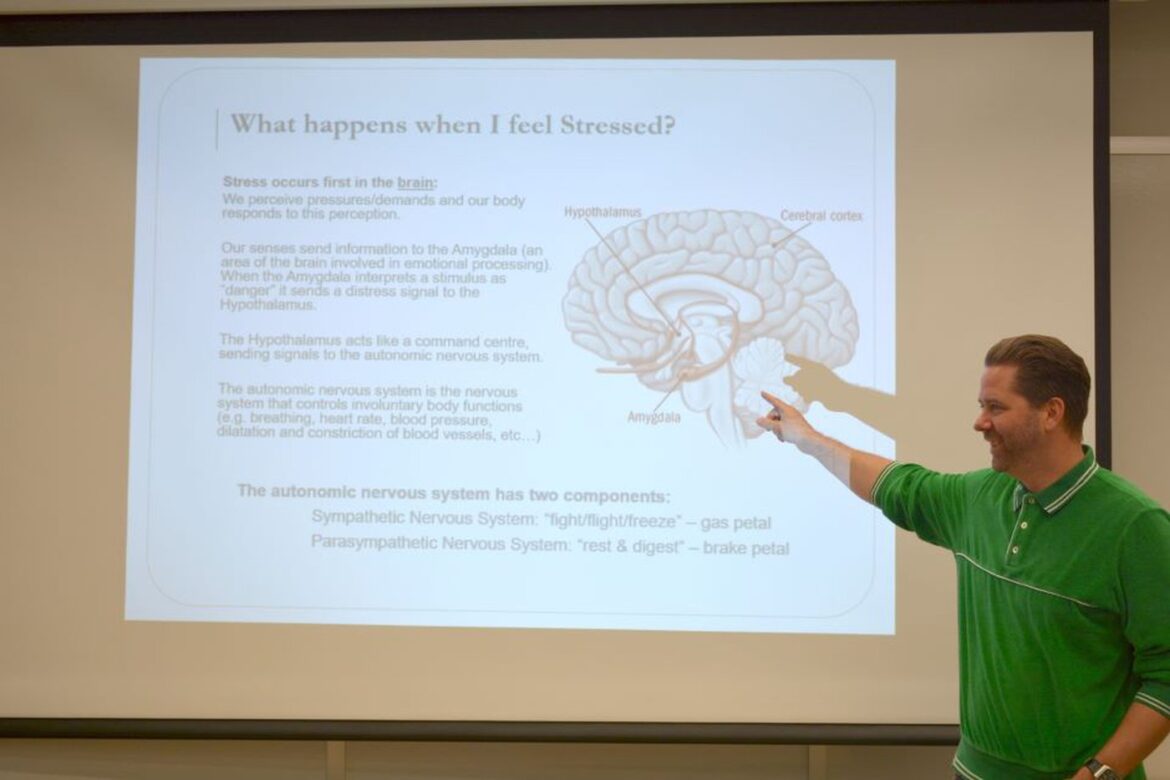There are many hazards associated with wildfires, and they aren’t all external. They can still affect you even if they don’t burn your house down.
Anxiety is understandably a major issue for many people. That is why Alberta Health Services (AHS) recently offered two presentations to the public on how to care for your mental health in times of high stress such as during wildfire season.
AHS addiction and mental health counselor Ryan Verge offered the talk first to seniors last month and another to the general public just last week. The program was initially developed by his colleagues in Edson after last year’s wildfires forced the town’s residents to evacuate twice.
“Upon people returning to the community, one thing that my colleagues discovered (and decided to run with) was having more resources available in connection to anxiety and stress associated not only with the response of being actively evacuated in regards to wildfire, but even just the potential threat of it happening,” he said.
“Having our wildfire season as we know that occurs every year, it’s just going to continue that way.”
His goal was to peel back some of the layers about the sources of stress and anxiety and how they affect us. He also brought home some important strategies and tools that we all can use to hopefully reduce or handle those psychological and emotional challenges the best that we can.
Biologically speaking, external stressors are processed by the amygdala in the brain. When the amygdala interprets a stimulus as a danger, it sends a distress signal to the hypothalamus, “the command centre” as Verge calls it.
It then transmits other signals to the autonomic nervous system. This system controls involuntary body functions such as your breathing and your heart rate.
“We know that when it comes to stress, there’s very much not just a mind connection to it but a body connection as well,” Verge said.
You can feel what bodily sensations arise because your body responds to such external stresses via internal physiological changes. The famous “fight, flight, or freeze” response comes from the autonomic nervous system.
After the 2016 wildfire in Fort McMurray, Verge had the opportunity to do some counseling and therapy in that region. Some of his clients said that they found themselves “stuck in that loop … excessively scrolling” for news and updates.
There is a balance between staying informed and being too immersed in the news cycle that it has a negative impact.
“What does that balance look like? Putting aside dedicated periods of time (especially because that’s how we get all of our information – through those channels that are connected, typically to social media in some way) and making sure that we have breaks from that to encourage us to be a little more healthy,” Verge said.
He noted how everyone has things that they can control that will help them manage stress responses, but not everyone chooses to do those things.
The American Psychological Association recommends five strategies that will help anyone to reduce and cope with stress: take a break from the stressor, exercise, smile and laugh, get social support and meditate.
“This isn’t just specific to wildfires or the threat of that,” Verge said.
“If we incorporate these things into our life, it’s going to put us in a better place to be able to react and handle stressful and tough situations, wildfires included.”
By Scott Hayes, Local Journalism Initiative Reporter





